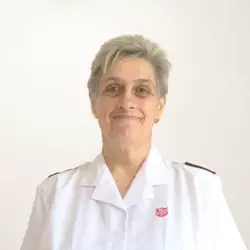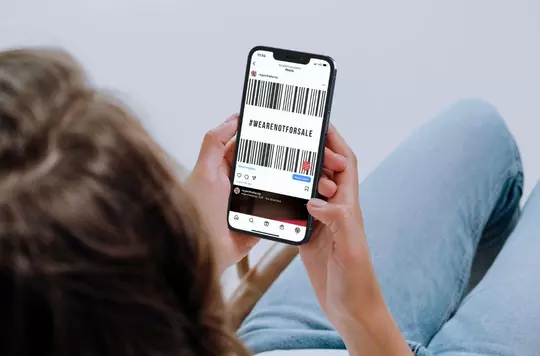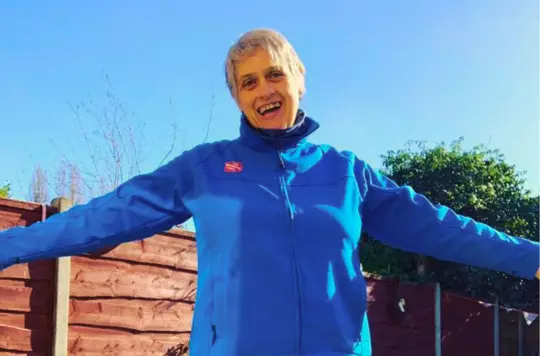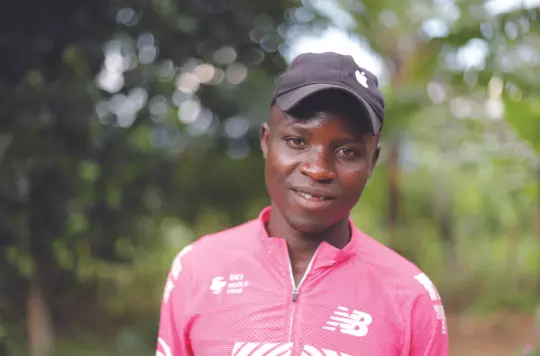19 October 2024
Show some compassion
Major Estelle Blake
Major Estelle Blake urges us to care for those who are tricked, trapped and traded.
Key text
Growing up, whenever I impolitely requested something, I often heard my parents say: ‘What did your last slave die from?’ Today, many would consider such a remark highly inappropriate. Reflecting on times past has brought about a change in attitudes and actions.
Around Europe, Christians of various denominations are celebrating Freedom Sunday this weekend. We are invited to pray for those caught in modern slavery and human trafficking. We are encouraged to remember them, to consider the exploitative situations they endure and the dangers they face. How will we act to bring victims to freedom and the hope of a new life?
In our study passage, God gives explicit instructions: ‘Do not mistreat or oppress a foreigner, for you were foreigners in Egypt. Do not take advantage of the widow or the fatherless’ (vv21 and 22).
These are people who have suffered loss and protection and, therefore, find themselves in a vulnerable position. In God’s judgement, their mistreatment is unacceptable, and he declares: ‘I will certainly hear their cry. My anger will be aroused, and I will kill you with the sword; your wives will become widows and your children fatherless’ (vv23 and 24).
It is clear that God expects his people to treat other people – foreigners, widows and orphans – as they themselves wish to be treated. If God’s people are agents of oppression, their sin is against God, as much as the individual, and he will punish their actions.
Pause and reflect
- Stop and consider who might be involved in modern slavery.
- How might we be involved in mistreating or taking advantage of foreigners?
If asked whether we are involved in slavery, I guarantee we would all say: ‘No!’ But we need to understand the difference between the biblical definition of slavery and what we regard as modern-day slavery. The slavery we read of in Scripture might be seen as the norm in those days. The slave owners, however, are exhorted to take care of their slaves, treating them with respect and care.
Modern slavery involves three main areas and is often described using three words – tricked, trapped and traded. These words help me to understand the difference between smuggling and trafficking: smuggling is a crime against the state and trafficking is a crime against the individual.
In Leviticus 19 we discover various laws that the Lord gave to Moses. In verses 33 and 34, we read: ‘When a foreigner resides among you in your land, do not mistreat them. The foreigner residing among you must be treated as native-born. Love them as yourself, for you were foreigners in Egypt. I am the Lord your God.’
If we travel to countries where we do not speak the local language, it is hard to communicate. Add to this a lack of understanding of culture and customs and we might encounter all kinds of difficulties. We don’t need to travel far in our own country to understand that bread rolls have varying names. As we travel around, it can be hard to understand that things familiar to us can have different names. There are local customs and regional accents we need to tune in to. Personal experience of differences will, hopefully, help us to understand how God’s word is relevant for us today.
Pause and reflect
- When have you been the ‘outsider’?
- How did that affect your sense of safety?
In Scripture, we see both religious and humanitarian laws – rules to be obeyed by individuals. Are we aware that we have some strange laws in England? For example, Section 7 of the Metropolitan Streets Act 1867 states: ‘Cattle not to be driven through streets within certain hours.’ It might seem silly, but it remains in English law.
In Exodus 22, we recognise humanitarian laws, and we are left in no doubt that breaking these will incur God’s wrath. To hurt foreigners is to hurt God. He takes it personally. These words remind me that God depends on us to act in the right way – his way – and not take advantage of people who are foreigners. God is compassionate and he expects us to also demonstrate his loving care.
In the world today, there are oppressors and exploiters engaged in modern slavery. News items make us aware of the numerous people who are being trafficked across dangerous seas. There are also people, however, who work tirelessly against slavery. Much depends on the kindness of strangers and individuals.
We have laws and procedures that need to be followed, which help us support a survivor of modern slavery and ensure they get all the care and practical support they need and are entitled to. In The Salvation Army, we have a number of volunteers who help and support survivors of modern slavery and human trafficking. There are many ways to get involved in ministry to survivors – transport, mentoring, language classes, fundraising and prayer.
Pause and reflect
- Think of a time when a stranger was kind towards you. How did it make you feel?
- What changes did it make to your situation and day?
We might be adamant that we are not involved in modern slavery, but maybe we need to take a closer look at where we buy our clothes, food and other supplies. Are there ‘strangers’ – men, women and children – being mistreated in the supply chain? How might we be contributing to their exploitation and misery? As consumers, it takes time to seek information as to whether goods are fairly traded. Will you make the effort?
Bible study by

Major Estelle Blake
Chaplain, Anti-Trafficking and Modern Slavery
Discover more

Find out how you can stand in solidarity with survivors this Anti-Slavery Day (18 October).

Major Estelle Blake unpacks the vital role that chaplains play in safe houses for survivors of modern slavery.

Hayley Still introduces the 2024 Helping-Hand Appeal.

